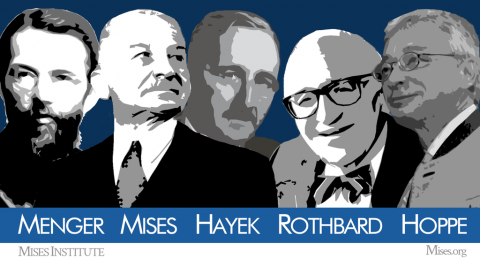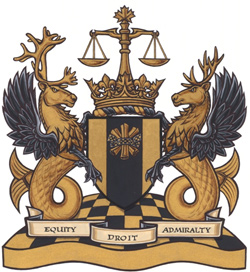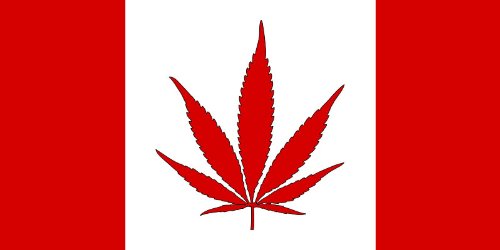Forgotten Weapons
Published 4 Dec 2019https://www.instagram.com/rockislanda…
https://www.youtube.com/user/RockIsla…
This is Lot 1578 in the upcoming RIA December 2019 Premier auction.
In 1983, Dennis Tippman formed a company to manufacture half-scale functional replicas of Browning machine guns — the 1919 and 1917 specifically. He built these as both fully automatic and semiautomatic (the semiauto design being approved by ATF in 1984) as new machine guns could still be registered in 1983. They were chambered for .22 LR rimfire ammunition, making then cheap and easy to shoot. In 1985, he added an M2HB replica, also in half scale, chambered for the .22 Magnum cartridge.
Tippman’s guns were excellent replicas of the originals, including accessories like tripods and even a few .22 caliber belt-loading machines. However, when the machine gun registry was closed in 1986, he left the business, selling it to FJ Vollmer. Tippman would move into paintball markers, and the company name is much better know for those today outside of a small community of machine gun enthusiasts.
Vollmer would eventually sell the company in 2001 to Eric Graetz and Lakeside Machine, who continued production of the semiauto versions, as well as offering post-sample automatics ones. This example is one of Graetz’ production, serial number 001 from when the company moved to New Haven Indiana.
http://www.patreon.com/ForgottenWeapons
Cool Forgotten Weapons merch! http://shop.bbtv.com/collections/forg…
Contact:
Forgotten Weapons
6281 N. Oracle #36270
Tucson, AZ 85704
December 5, 2019
Tippman’s Half-Scale .22 Rimfire Browning 1917 Machine Gun
November 20, 2019
Activist court watch – Federal Court of Canada judge creates new website blocking rules
Michael Geist on the precedent-setting decision from the Federal Court of Canada:
A Federal Court of Canada judge issued a major website blocking decision late Friday, granting a request from Bell, Rogers, and Groupe TVA to block access to a series of GoldTV streaming websites. The order covers most of the Canada’s large ISPs: Bell, Eastlink, Cogeco, Distributel, Fido, Rogers, Sasktel, TekSavvy, Telus, and Videotron. The case is an important one, representing the first extensive website blocking order in Canada. It is also deeply flawed from both a policy and legal perspective, substituting the views of one judge over Parliament’s judgment and relying on a foreign copyright case that was rendered under markedly different legal rules than those found in Canada.
Perhaps most troubling is that the judge has created a substantive new policy framework for site blocking, an issue that given the many complex policy issues (including copyright enforcement, freedom of expression, net neutrality, and telecom competition) is best left to Parliament. Indeed, the activist judicial approach explicitly engages in an analysis that considers many of the policy issues but arrives at its own conclusion about how best to balance competing interests. These are issues that are best left to elected officials. The Standing Committee on Industry, Science and Economic Development, which completed the comprehensive copyright review earlier this year, heard extensive submissions from groups calling for reforms to the law to include site blocking. It instead recommended:
Following the review of the Telecommunications Act, that the Government of Canada consider evaluating tools to provide injunctive relief in a court of law for deliberate online copyright infringement and that paramount importance be given to net neutrality in dealing with impacts on the form and function of Internet in the application of copyright law.
In other words, the committee recommended holding off on a site blocking rule until further study is conducted. Moreover, it concluded that “paramount importance be given to net neutrality.” The judge in GoldTV acknowledged that there were net neutrality concerns (rejecting claims that “net neutrality is of no application where a site blocking order is sought.”), but concluded that the net neutrality issues did not tip the balance against granting the injunction. Not only is that inconsistent with the copyright review emphasis of paramountcy for net neutrality, but it represents the judge making a policy choice best left to elected officials.
The CRTC, which rejected a proposal for an administrative site blocking system in the FairPlay case, also thought the issue was best left to the government. Its ruling specifically cited the copyright review and the review of the Broadcasting and Telecommunications Act as avenues to address the issue. In other words, the appropriate venue to consider site blocking was government, not an administrative agency.
November 19, 2019
The “Carbuncle Cup” is good, but we need mandatory demolition because name-and-shame hasn’t worked
I like the cut of Peter Franklin‘s jib:

Centre Georges-Pompidou (no, this isn’t an under construction image … it’s from 2017)
Gerd Eichmann photo via Wikimedia Commons.
The Nobels, the Oscars, Pipe Smoker of the Year: glittering prizes all, but I prefer the Carbuncle Cup, which is awarded annually to the “the ugliest building in the United Kingdom completed in the last 12 months”.
Organised by the magazine Building Design, it has (in my aesthetic judgement) produced a worthy shortlist and a worthy winner every year since its inception in 2006.
But there’s a big problem with the prize — not its subjectivity, but the fact that the winning buildings still exist. Indeed, buildings like them are still being built. Name-and-shame is not working.
There’s an argument to be made that things are getting worse. We’ve swapped the horrendous, but interesting, brutalism of the post-war period for the offensively bland spreadsheet architecture of the 21st century. In an age in which Jane Jacobs has won the intellectual battle against Robert Moses, we really ought to know better. Yet we continue to fill up our towns and cities with inhumane, alienating architecture.
It might seem paradoxical, but to end the cycle of destruction, we need to accelerate it. Every year, there should be a public vote to choose the worst new building in the land. The winner wouldn’t get a cup, but a wrecking ball. Yes, that’s right, it would be physically demolished — immediately and without compensation. Indeed, the owner would be required to foot the bill for the building’s de-construction (though they would have the option of suing the architect and the planning authority).
This would concentrate minds wonderfully. Instead of competing among themselves to épater les bourgeois, starchitects would need to design with due regard to the common good. Meanwhile, developers whose sole objective is to squeeze as much profitable square footage into any site they can get their hands on, would have to contend with the possibility of financial (as well as literal) ruin. The planners would come under immense pressure to do a better job too. At the cost of sacrificing one new building, development across the land would be greatly improved.

Cumbernauld Shopping Centre, voted as Britain’s most hated building.
Photo by Ed Webster via Wikimedia Commons.
H/T to Colby Cosh for the link.
November 4, 2019
QotD: Ludwig von Mises explains the fall of the western Roman empire
Knowledge of the effects of government interference with market prices makes us comprehend the economic causes of a momentous historical event, the decline of ancient civilization.
[…]
The Roman Empire in the second century, the age of the Antonines, the “good” emperors, had reached a high stage of the social division of labour and of interregional commerce. Several metropolitan centres, a considerable number of middle-sized towns, and many small towns were the seats of a refined civilisation […]. There was an extensive trade between the various regions of the vast empire. Not only in the processing industries, but also in agriculture there was a tendency toward further specialization. The various parts of the empire were no longer economically self-sufficient. They were interdependent.
What brought about the decline of the empire and the decay of its civilization was the disintegration of this economic interconnectedness, not the barbarian invasions. The alien aggressors merely took advantage of an opportunity which the internal weakness of the empire offered to them. From a military point of view the tribes which invaded the empire in the fourth and fifth centuries were not more formidable than the armies which the legions had easily defeated in earlier times. But the empire had changed. Its economic and social structure was already medieval […]
[I]n the political troubles of the third and fourth centuries the emperors resorted to currency debasement. With the system of maximum prices the practice of debasement completely paralysed both the production and the marketing of the vital foodstuffs and disintegrated society’s economic organisation. The more eagerness the authorities displayed in enforcing the maximum prices, the more desperate became the conditions of the urban masses dependent on the purchase of food. Commerce in grain and other necessities vanished altogether. To avoid starving, people deserted the cities, settled on the countryside, and tried to grow grain, oil, wine, and other necessities for themselves.
Ludwig von Mises, Human Action, 1949.
November 3, 2019
Colby Cosh on the origins of carbon taxes
In response to a column by Andrew Coyne in the National Post, Colby Cosh outlines the intellectual origins of carbon pricing:
As Andrew knows, the intellectual origins of carbon pricing are purely classical-liberal. Maybe you have to belong to our club to spot that he has carefully not called it an invention of the “left.” When I was an undergraduate, it was the unfashionable libertarian and Hayekian zanies, not the despondent post-Cold-War Marxists, who were preaching what would become mainstream environmental economics. The left has been slow rather than fast to accept the idea of putting a mere price on what they regard as an inherent evil.
All of the foundations of carbon pricing were developed by economists that the left, in all varieties, now regards as cartoonish modern-day demonoids. The gentle Arthur Pigou, who developed the concept of economic externalities and the idea of taxing them, might still pass muster. But Pigou’s reformer-reviser Ronald Coase is deeply suspect, having pioneered an amoral analysis of externalities that tackles social-cost problems like environmental pollution without assigning blame to, or even necessarily acting against, the polluters.
In his paragraph Andrew almost explicitly outlines the theory of the “double dividend” from replacing bad, economically distorting taxes (like the one we impose on incomes) with taxes laid directly on externalities like carbon. The double dividend is pure Gordon Tullock, who is now a hate figure on the left for his role in creating public choice economics.
You can see that this analysis gets pretty complicated in a hurry. The idea of carbon taxation isn’t really of the right or the left. The best term for it might be “neoliberal,” although some people think there is no useful place for that word. To the degree that the left has accepted carbon pricing, they have done so as a (perhaps mostly unwitting) compromise with otherwise abominable thinkers like Coase and Tullock. Total state command-and-control of the economy isn’t an option in today’s Western world, and since there’s a neo-Malthusian crisis in the atmosphere around us, we had better try to solve it without having to execute a global socialist revolution first.
But if instinctive suspicion of the state is a feature of the conservative mind, carbon pricing doesn’t solve the problem completely. Canadian carbon tax designs have been given redistributive features, which makes them more acceptable politically to people who aren’t instinctive or innate conservatives, but creates confusion and distaste for those who are. And to the degree conservatives are inclined to doubt that the state will cut other taxes to make carbon prices revenue-neutral, they have been partly justified, so far, by the history of Alberta and B.C. The “double dividend” is a good idea: can governments be trusted to actually let us collect it?
In a nutshell, that lack of trust is why I’m generally opposed to the federal carbon tax system, even though the idea of carbon taxes (when properly implemented) are far less distorting to the economy than the hodge-podge of taxes and regulations we have now.
October 3, 2019
Toronto’s gun problem
The city of Toronto has a gun problem, and politicians are lining up to offer variations of the same idea as the solution. You see, unlike every other city in North America, all of the gun crime in Toronto is committed by legal owners of AR-15 and AK-47 “assault weapons”. They’re all fully registered with the federal government, and have taken all the required training courses and keep their weapons under the strict storage and transportation rules, never taking them anywhere but to the legally designated shooting range and always on the permitted route to and from that range (and they’re all life-members of the NRA, of course). This is why, unlike every other city in North America, a ban on “assault weapons” will eliminate 100% of the gun-related crime in Toronto.
In the real-world version of Toronto, however, the proposed ban will have almost no impact on the crime rates, because almost none of the gun-related crimes committed in Toronto involves any kind of “assault weapon”, most being turf disputes involving illegal handguns between drug dealers and personal grudges among “young aspiring rappers who are just about to turn their lives around”:

Colt Canada’s model SA20, a commercial version of the Canadian C7A2 rifle.
Image from the Colt Canada website.
If Liberals are re-elected to a second term in government, their plan to tackle gun violence includes a ban on high-velocity, semi-automatic rifles like the AR-15, and gun marketing bans that evoke America’s favourite action figure.
“There are sometimes advertisements and videos that appear (on social media) … to imply that we can be GI Joe on our main street,” Public Safety Minister Ralph Goodale said about the Liberal platform’s vague reference to “limit the glorification of violence by changing the way firearms are advertised marketed and sold in Canada.”
During a Q&A with reporters in Ottawa on Sunday, where Goodale fielded questions about their incumbent government’s election promises, the minister attempted to qualify freedom of expression implications with the types of promotional material that could be targeted.
“(It) depicts a kind of behaviour that is simply inappropriate and some people would find it quite threatening … and it leads to the impression of military assault weapons is something you just do, every day,” explained Goodale.
I’m not a big consumer of advertising, but I can’t recall the last time I saw any kind of ad for firearms in Canada that wasn’t in a gun magazine (and there are not many of those sold in typical corner stores). Scary black guns in Hollywood movie ads, sure … they’re everywhere … but that’s not in any way related to the advertising, sale, or use of guns in Canada.
September 26, 2019
QotD: Preventing “price gouging” is counter-productive in an emergency
During an emergency like a hurricane, many different categories of goods and services experience supply-demand shocks. The shock may be because of a fall in supply (e.g. oil companies can’t get gasoline into the area) or a spike in demand (e.g. for generators or plywood) or a combination of both. In a free market, prices will rise to help match supply and demand. Higher prices cause people with less valuable or more frivolous uses of the scarce goods to defer purchase, and can cause suppliers to expend extra effort to get product into the area, even diverting supplies from other areas.
When the government institutes price gouging laws in an emergency, the supply-demand mismatch that leads to the rising prices isn’t magically eliminated. First, without higher price incentives, all the incentives to get more supply into the area are lost. Supply and demand under these regulations can only be matched by rationing demand, and typically this is through queuing and increasing search costs (e.g. driving around all over the place looking for a station that is open and has gas). People who gain the limited supplies in this regime are thus those with a lot of time on their hands, where the marginal cost of queuing and driving around does not impose a lot of cost. Think about a roofer scrambling to repair roofs after the a storm — do they have time to have their trucks and crews sitting dormant in gas lines? Thus, price gouging laws tend to ensure that scarce goods in an emergency flow to those with the least use for them.
Warren Meyer, “Price Gouging Laws: Allocating Goods in An Emergency To People Who Have Nothing Much Valuable to Do”, Coyote Blog, 2017-08-26.
September 20, 2019
The reason we don’t have – and will never have – an Economists Party
Andrew Coyne points out that the study of economics probably disqualifies you from being an effective politician, because achieving success in the sausage factory of politics requires you to ignore or even work against economic facts:

A Mises Institute graphic of some of the key economists in the Austrian tradition (Carl Menger, Ludwig von Mises, Friedrich Hayek, Murray Rothbard, and Hans-Hermann Hoppe.
Mises Institute via Wikimedia Commons.
I believe I was the first to propose the creation of an Economists Party, a political movement that would advocate for the sorts of policies favoured by people who study economics for a living, based on the principles at its core.
It could not happen, of course, any more than the existing parties are likely to suddenly embrace the teachings of economists they have so cheerfully ignored until now, and for the same reason: because politics is, at its core, the opposite of economics.
The basic principle of economics is that everything is scarce. The basic principle of politics is that nothing is scarce. Economics teaches that more of one thing can only be had at the expense of less of another. Politics teaches that we can have more of both things, and of everything else besides.
Since more of one thing means less of another, economics tells us there is no point in favouring one part of the economy over another: the resources diverted to one firm, industry or region are simply resources denied to all the rest. Whereas politics is all about such transfers: a perpetual merry-go-round of redistribution, not from rich to poor, which is appropriate, but from everybody to everybody, which is impossible.
And if, for some reason, a politician were to resist this impulse, he would shortly find himself out of work. For whereas the benefits of a given intervention are typically concentrated on this or that group, the costs are spread widely; its beneficiaries, accordingly, have every incentive to organize and agitate on its behalf, while those footing the bill — consumers, taxpayers, or both — have comparatively little at stake as individuals. They may not even know who they are.
Thus it is that politics inclines, more or less inevitably, to prefer the narrow interest over the broad; producers over consumers; the present over the future. The only difference between the parties is whether this bias to the expedient is dressed up as a philosophy and celebrated as a positive good, or merely yielded to.
September 10, 2019
We’ve noticed this too…
Sarah Hoyt on the increasing “green-ness” of her appliances — and the increasing uselessness of same:

“A-rated energy appliances” by Tom Raftery is licensed under CC BY-NC-SA 2.0
For years we got expensive front loaders, and yet our clothes kept smelling, there were stains that would not come out, and these things seemed to last only 5 years, on the outside. And I knew it wasn’t our problem, as such, because at the same time we started noticing we couldn’t get our clothes clean, the detergent aisle of the supermarket sprouted an entire section of odor removing things, Febreeze got added to detergents, and, in general, people smelled odd …
Then the washer broke while we were also very, very broke (we were paying mortgage and rent in the run up to buying this. I saw an ad for, I THINK a $300 washer, and we went to look. What we found, instead, was a $200, not advertised washer. As we’re looking at it the saleswoman hurries over and tells us we don’t want it. This washer, she says, uses lots of water. For those who don’t know I suffer from an unusual form of eczema. While it’s triggered mostly by stress with a side of carbs, it can also, out of the blue, take offense at a slight trace of detergent left on the clothes. I’ve found that the eczema got markedly worse the less water the washer used. And it required me to run the washer three times, once with soap and two without to avoid major outbreaks. The idea of using lots and lots of water was great, so I was all excited. Which shocked the poor saleswoman halfway to death. I will point out, though, though that this washer washes well enough I can get away with only one extra rinse cycle and if I forget it it’s usually survivable. Also, our clothes don’t smell. Unfortunately, we’ve not found that [type] of washer any of the times we’ve walked through the appliance aisle, so I think that choice has been eliminated.
Certainly the choice of dishwashers that use “lots” (i.e. what they used 20 years ago) of water and electricity was never offered to us. And since we seemed to have really lousy luck with dishwashers, I found every time we replaced one over the last 20 years, they had less space for dishes (more insulation, to allow for less electricity) to the point that I needed to do 3 or even 4 loads for a family of four. I mean, I cook from scratch, but I really don’t use that much stuff. And it ran slower than before. Right now our dishwasher actually washes (a bonus) but it takes four hours to run a cycle. I rarely do more than one wash a day, though, because it’s just Dan and I, and we … well … the kids used a lot more glasses and little plates, and frankly meals get more complicated for four people.
All the same, there was a time there, for like 10 years, where we were running all this “green” approved stuff, and not only was I running the washer and drier more or less continuously, but to make things more “interesting” I was using MORE water and electricity, in the sense that I was running the appliances a ton more.
This of course is what I also found with the “low flush” toilets. We had them in our previous house, and we found that we spent an inordinate amount of time flushing the toilet. Also, since it took four or five flushes to do the job or one, the fact we were actually only using half the water per flush didn’t save any water. We spent instead twice to three times the amount of water the “high flush” toilets had spent.
All this, btw, to appease Paul Ehrlich — the prophet of wrong. As in, if he foresees something it will be wrong — and his ridiculous idea we’d run out of potable water in 1978. Apparently none of these people have noticed that 1978 has come and gone with no problems. And as for electricity, if they stop their idiocy about nuclear, it’s not even a consideration. (And no, Chernobyl isn’t a caution about nuclear energy. It’s a caution about stupid communist regimes. They can’t run anything — not even a nuclear plant — without destroying it.)
Lightbulbs are another favourite … several years back, our provincial government was pushing us all to get rid of our old incandescent bulbs and replace them with these great new energy-efficient compact fluorescent bulbs. The new CFLs cost roughly ten times as much as the old bulbs, but we were assured up and down that they’d last twenty times longer, so we’d not only save money on electricity, but also have to replace the bulbs so infrequently. Of course, the CFL bulbs were pathetically bad — not only were they expensive, the light they gave was (at best) marginal and they didn’t even last as long as typical incandescent bulbs.
So now, of course, we’re being encouraged to use LED bulbs. Sure, they’re more expensive than the old incandescent bulbs, but they save on electricity and last many times longer! Except, of course, they don’t. The old incandescent bulbs in my office started to fail one after another, so when I was down to only one working bulb, I gave in and bought four replacement LED bulbs … they were on sale for only 2-3 times as much as the old bulbs! That was in March. I’ve already had to replace two of the LED bulbs. This is starting to feel familiar…
On the bright side (pun unintentional), the LED bulbs don’t provide the entertainment of a toxic waste cleanup in your home the way the CFL bulbs did when they were broken.
August 26, 2019
Australian fertilizer run-off and the (remains of the) Great Barrier Reef
The Great Barrier Reef used to be one of the natural wonders of the world, but as we were told about ten years ago, unless Australians gave up fossil fuels (or was it electricity?), the reef had bare months to survive. As we’re years past that inflexible deadline, we have to assume that the reef is now dead, dead, dead. Yet there are apparently still state or federal regulations in place to protect the (former) reef that Australian farmers are struggling against:

Great Barrier Reef by James_W_Thompson
“IMG_5035-1” by James_W_Thompson is licensed under CC BY-NC-SA 2.0
Our man in Tolga (north Queensland) has written to the local press on the absurd green tape tying up farmers.
QUOTE
The ever-tightening regulatory stranglehold on farmers by governments “for the health of the Reef” (The Express, 21/8) is based on what Professor Peter Ridd has called “faulty science”.Fertilisers are expensive and they aren’t used wastefully. They’re plant food; if the crops don’t consume them then the neighbouring vegetation, on land or in waterways, will – long before they get to the Reef.
If fertilisers were running off farms there’d be big green plumes leading downhill from them, easily visible on Google Earth. There aren’t. Likewise with herbicides and pesticides, there’d be big plumes of dead flora or fauna visible to drones. Again; there aren’t. It may have happened in the past, but these aren’t current problems.
Terrestrial silt run-off is a different matter to fertilisers and herbicides/pesticides. It has been pluming out from rivers since time began. The coastal reefs have always experienced it.
Just 15,000 years ago during the last ice-age the seas were 120 metres lower, the Reef’s current site was a coastal plain, and the Reef clung to the edge of the continental shelf. Everything that came out of the rivers washed over the whole Reef. And, yes, there was a lot of silt during the ice-age. CO2 was much lower due to the cooler seas (Henry’s Law), so plants were sparser. It was colder and drier so there was less rain to water what plants there were.
Aboriginal tribes were doing it tough, so they used firestick farming to get what small game there was. That left a lot of bare earth which blew as dust into valleys and was washed out to sea when the rains did come.
But it’s different now. Much of the main Reef area is 40 to 70 kilometres out to sea, and as Professor Ridd said, the prevailing south-easterly wind and currents keep terrestrial run-off much closer to shore. Professor Ridd also notes that more clean ocean water flows through the Reef each day than flows from our rivers each year.
Nonetheless, the mud-meme is being heavily promoted at present; “Earlier this year, a muddy plume of polluted water hit our Reef. It was so big you could see it from space.” Search the internet for “Muddy plume extends to Great Barrier Reef images from space” and there’s several alarmist websites (including “our” ABC) showing just one obviously-modified image.
August 10, 2019
QotD: Progressives and spontaneous order
I suspect that the single biggest factor that distinguishes “Progressives” from libertarians and free-market conservatives is the simple fact that “Progressives” do not begin to grasp the reality of spontaneous order. “Progressives” seem unable to appreciate the reality that productive and complex economic and social orders not only can, but do, emerge unplanned from the countless local decisions of individuals each pursuing his or her own individual plans. Therefore, “Progressives” naturally adopt a creationist view of society and of the economy: without a conscious and visible (and well-intentioned) guiding hand, society and the economy cannot possibly work very well. Indeed, it seems that for many (most?) “Progressives,” the idea that a spontaneously ordered economy can work better than one directed consciously from above – or, indeed, that a spontaneously ordered economy can work at all – is so absurd that when “Progressives” encounter people who oppose “Progressive” schemes for regulating the economy, “Progressives” instantly and with great confidence conclude that their opponents are either stupid or, more often, evil cronies for the rich and the powerful.
Conduct an on-going experiment: whenever well-meaning “Progressives” (of which there are very many) propose this government intervention or oppose that policy of reducing government’s role in the economy, ask if these “Progressives'” stated reasons can be understood to be nothing more than a reflection of a failure to understand the power and range of spontaneous-ordering forces in private-property settings. The answer will almost always be “yes.” Very often, no further explanation for “Progressives'” policy stances is necessary.
“Progressives” simply don’t “get” spontaneous order in human society. They see a problem and leap to the only conclusion that for them is sensible – namely, that that problem’s only realistic “solution” is that it be directly addressed by government officials. Indeed, even “Progressives'” frequent misdiagnoses of the results of trade-offs as being “problems” (or “market failures”) reflect a failure to understand spontaneous-ordering processes. Many phenomena and patterns that “Progressives” assume to be problems – for example, increasing inequality of monetary incomes – are often the benign results of the countless and nuanced individual trade-offs made by individuals. For “Progressives,” though, these “outcomes” are often assumed to be the consequence of sinister designs.
Don Boudreaux, “Bonus Quotation of the Day…”, Café Hayek, 2017-06-24.
July 11, 2019
From Aerobatics to Terror Bombing | Between 2 Wars | 1927 Part 2 of 2
TimeGhost History
Published on 10 Jul 2019With thousands of planes left over from World War One, hobby pilots and entrepreneurs set out to create the modern airline industry. Charles Lindbergh, Amelia Earhart, and many more set record after record, while airplane manufacturers start the creation of passenger, freight planes, and a new generation of aerial weapons.
Join us on Patreon: https://www.patreon.com/TimeGhostHistory
Hosted by: Indy Neidell
Written by: Joram Appel and Spartacus Olsson
Directed and Produced by: Astrid Deinhard and Spartacus Olsson
Executive Producers: Bodo Rittenauer, Astrid Deinhard, Indy Neidell, Spartacus Olsson
Creative Producer : Joram Appel
Post Production Director: Wieke Kapteijns
Research by: Joram Appel
Edited by: Daniel WeissArchive by Reuters/Screenocean https://www.screenocean.com
A TimeGhost chronological documentary produced by OnLion Entertainment GmbH
July 10, 2019
QotD: Price controls
Price controls – both price ceilings and price floors – reduce the quantities of price-controlled goods and services that consumers actually get. Forcing the money price of a good or service down with a government-imposed price ceiling reduces the amount of this good or service that consumers actually get by reducing the quantity supplied (from what that quantity would be were the money price not forced downward). Forcing the money price of a good or service up with a government-imposed price floor reduces the amount of this good or service that consumers actually get by reducing the quantity demanded (from what that quantity would be were the money price not forced upward). In both cases, the government intervention reduces economic output.
Minimum wages, statutory prohibitions on so-called “price gouging,” and other price controls reflect irrational mysticism. These controls are all premised on the notion that by forcibly changing the nominal reported value of a good or service – that is, by forcibly changing the name of the value – the real value of the good or service will change to correspond to the dictated name. It’s a notion no less batty than is the belief, say, that the New York Times can actually change the number of people killed in a terrorist attack by changing the name of the number. Yet who believes that if, say, 18 people are killed in a terrorist attack that the number of dead people will miraculously be reduced by three if the New York Times reports that “15 people were killed in a terrorist attack”? The answer, of course, is no one. Indeed, anyone who would suppose that reality is changed simply when newspaper reports of it are changed is recognized as being too far detached from reality to take seriously.
Those who support price controls are just as detached from reality. The market-determined price of a good or service is as accurate a report as is possible of the value of each unit of a good or service. This value will not move up or down simply if the government orders it to move up or down.
[…]
None of this matters to proponents of price controls. Such proponents are satisfied with the fact that the names of the values of good or services are changed in ways that please the eye and ear of the economically illiterate. If it is now possible to say that the highest name of the value of a gallon of gasoline is $1.00, then these proponents are content to believe that the real value is indeed $1.00. If it is now possible to say that the lowest name of the value of an hour of low-skilled labor is $7.25, then these proponents are content to believe that the real value is indeed $7.25.
It’s a foolish superstition. It is, however, a superstition that is very widespread, especially among those who today fancy themselves to be immune to superstitions.
Don Boudreaux, “Quotation of the Day…”, Café Hayek, 2017-06-19.
May 22, 2019
May 1, 2019
To the surprise of nobody, Ontario’s cannabis stores are still struggling
The Ontario government created a tightly restricted retail market regime for newly legal cannabis sellers, with a tiny number of licenses issued and highly bureaucratic “safeguards” for the retailers’ guidance and control. The city of Toronto, for example, with a population in the 2.7 million range, was allocated a whopping five stores. Only one of those stores was allowed to open on the first day of legal retail sales, and today there are three in operation, despite penalties and potential loss of licenses at stake for those who haven’t opened yet. The chorus of complaints from would-be customers has not diminished much, if at all since day one:
With legalization day long come and gone (and the euphoria of being able to spark a joint in public gone with it), the turtle-paced roll-out of Toronto’s weed retail scene goes to show the government and the OCS have some work to do before purchasing legal weed can be completely glitch-free (and lineup free, too).
Here are a few of the lows of getting high, courtesy of Toronto weed stores since buying pot became legal.
Weed prices are up
According to Statistics Canada, prices for weed have steadily been on the up and up since legalization last year.While Nova Cannabis is trying to tackle its biggest competitor (illicit weed stores) with Black Market Buster deals, people who are buying their cannabis from the OCS are now paying an average of about $9.99 per gram—that’s roughly $3 more than those buying their bud from illegal stores.
Black market weed is still thriving
There’s still around 20 illegal dispensaries operating in the city, and at least 100 illegal marijuana delivery services. Why? See above: unlicensed weed stores are significantly cheaper than the legal ones, and loopholes in the city’s laws allow them to operate pretty much undisturbed, save for the occasional raids.[…]
OCS packaging
Aside from the fact every product coming out of the OCS comes triple-wrapped in excessive, sometimes non-recyclable polypropylene packaging, the containers are just plain confusing.Lack of packaging standards means your order comes in all shapes and sizes, regardless of whether you’re getting bud or pre-rolled joints, which is as confusing for buyers as it is for those behind the counter.
And that doesn’t even include the even louder chorus of complaints about the quality of the legal product…









